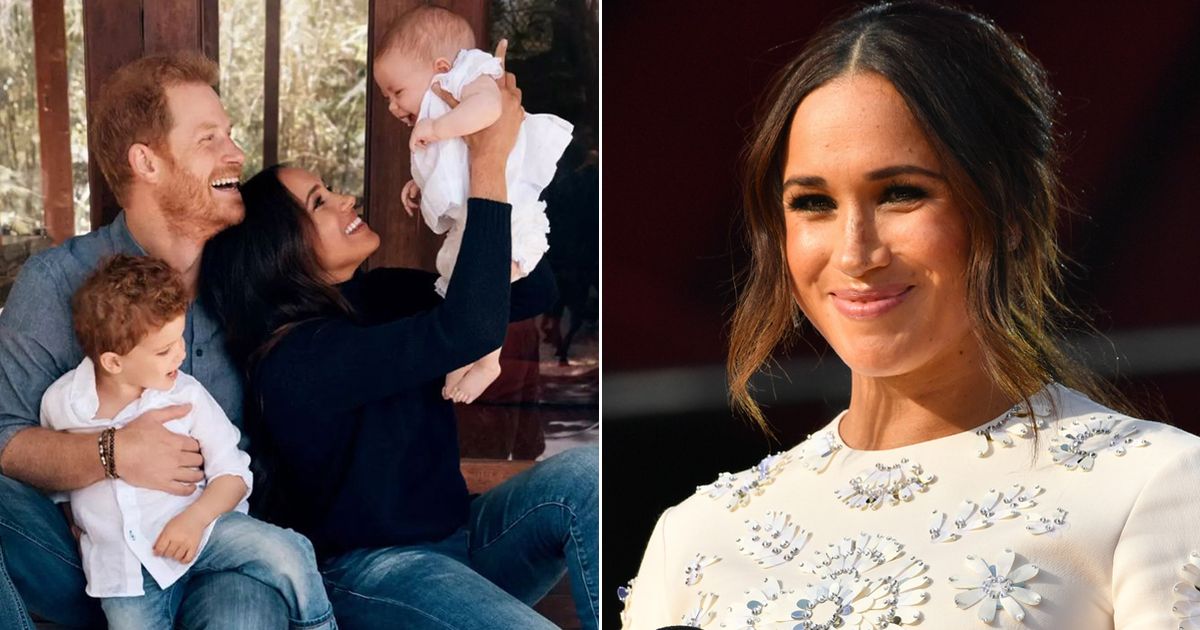The Sussexes made a major announcement regarding their two children following their daughter Lilibet’s christening – and it surprised many royal watchers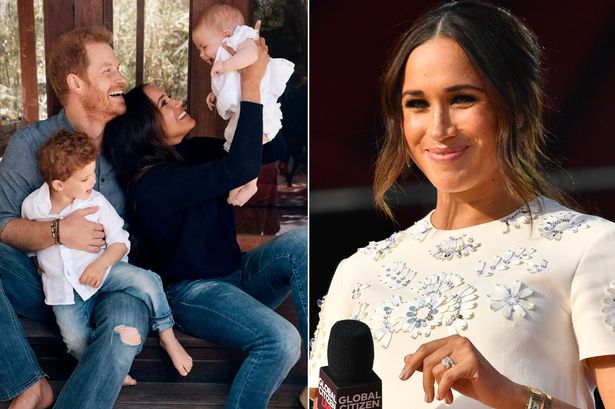 Harry and Meghan quit royal life in January 2020 – but their children now use their royal titles(Image: alexilubomirski/Instagram)
Harry and Meghan quit royal life in January 2020 – but their children now use their royal titles(Image: alexilubomirski/Instagram)
Ever since they quit royal life, Prince Harry and Meghan Markle have continued to speak publicly about their ongoing rift with the duke’s family.
So many were surprised when they unexpectedly announced their decision to use their children’s royal titles back in 2023. And it all reportedly came down to a key conversation they had with two of Harry’s relatives.
They shared the news following daughter Lilibet’s christening in California, expressing their wish that their children adopt their royal titles.
This is despite the fact that Meghan and Harry can no longer use HRH titles themselves, and Meghan’s declaration to Oprah Winfrey in 2021 that she didn’t have any “attachment” to the “grandeur” of royal life.
READ MORE: Prince Harry ‘red with anger’ over Meghan Markle’s story of meeting late QueenREAD MORE: Mike Tindall ‘took Prince Harry’s title’ after Duke quit UK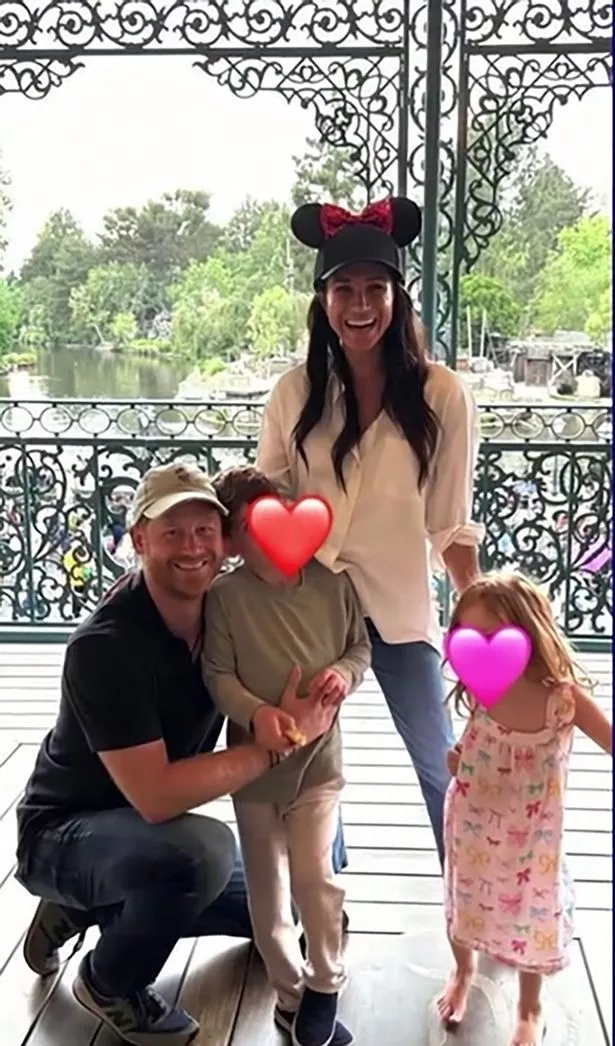 Meghan and Harry made a surprising decision regarding their children’s titles(Image: BACKGRID)
Meghan and Harry made a surprising decision regarding their children’s titles(Image: BACKGRID)
A spokesperson for the Sussexes said at the time: “The children’s titles have been a birthright since their grandfather became monarch. This matter has been settled for some time in alignment with Buckingham Palace.”
It has now been claimed that the couple made this decision after speaking to Harry’s cousins, Princess Beatrice and Princess Eugenie. And, according to a royal expert, the Sussexes changed their minds for some very specific reasons.
“Harry and Meghan are very, very keen to cling onto those royal titles,” journalist Neil Sean said, via the Express. “After much deliberation, Meghan decided that the titles would be a good thing, not just for her but for both her children too.
“Meghan became very friendly with senior members of the monarchy, predominately Princesses Eugenie and Beatrice. After this, Meghan realised how useful a title can be, particularly when you want to move in the correct circles. That is the reason why they want to clutch hold of titles.”
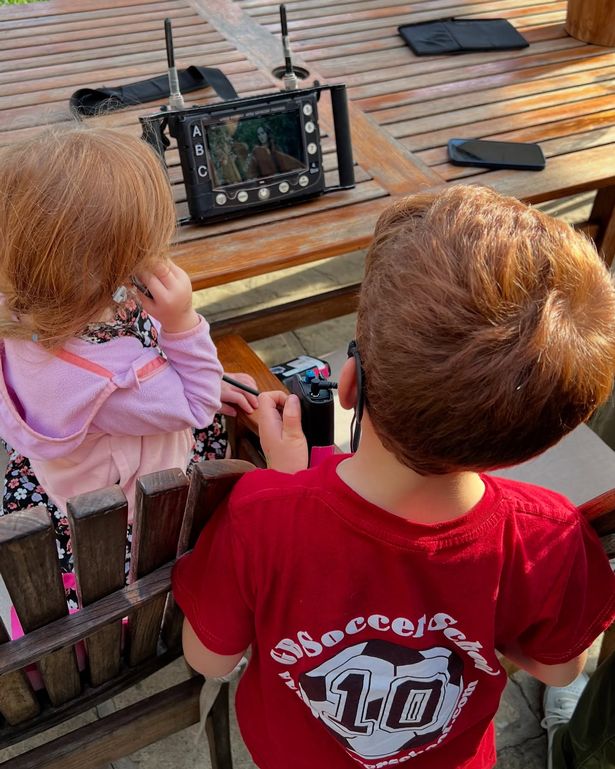 Archie and Lilibet are now styled Prince and Princess(Image: meghan/Instagram)
Archie and Lilibet are now styled Prince and Princess(Image: meghan/Instagram)
Archie and Lilibet could have been styled as a prince and princess from the very start of their grandfather’s reign as a result of a royal rule introduced by King George V.
The Letters Patent 1917 declared that only the monarch’s children, male-line grandchildren, and the eldest son of the Prince of Wales could hold a princely title.
This means that when Archie and Lilibet were the great-grandchildren of Queen Elizabeth II, they were not permitted to hold the titles, but when King Charles came to the throne, they were eligible as they became grandchildren of the sovereign.
READ MORE: Prince Harry says Prince William gave four-word reply to Meghan Markle’s pregnancy
A 2012 Letters Patent, issued by Queen Elizabeth, gave the HRH title to all children of the eldest son of the Prince of Wales, so all of Prince William’s children were “Prince” and “Princess” upon their birth.
Harry and Meghan’s children are now known as Prince Archie of Sussex and Princess Lilibet of Sussex, and after a delay, the official British royal family’s website updated their names in the line of succession. Previously, they were listed as Master Archie Mountbatten-Windsor and Miss Lilibet Mountbatten-Windsor.
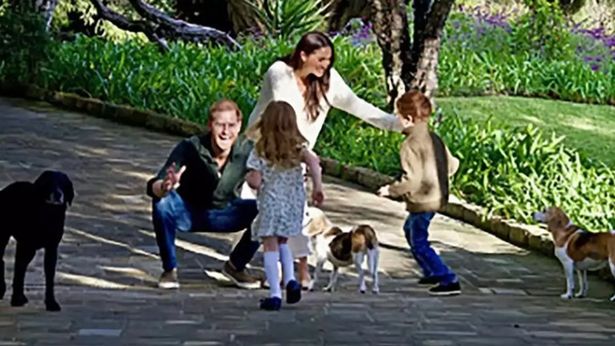 The children were previously known as Master Archie Mountbatten-Windsor and Miss Lilibet Mountbatten-Windsor(Image: ARCHWELL)
The children were previously known as Master Archie Mountbatten-Windsor and Miss Lilibet Mountbatten-Windsor(Image: ARCHWELL)
It wasn’t the first time Harry and Meghan had surprised royal watchers when it came to their kids. The couple were said to have made the late Queen as “angry as I’d seen her” over one of their major family decisions, according to a palace staffer.
The Sussexes quit royal life in January 2020, less than two years after their wedding. The following June they welcomed their second child, a daughter they chose to name Lilibet Diana.
The moniker certainly raised eyebrows amongst royal fans. Lilibet was the Queen’s affectionate nickname stemming back to when she was a young girl. It’s thought it came about because the young Princess Elizabeth was unable to pronounce her own name properly.
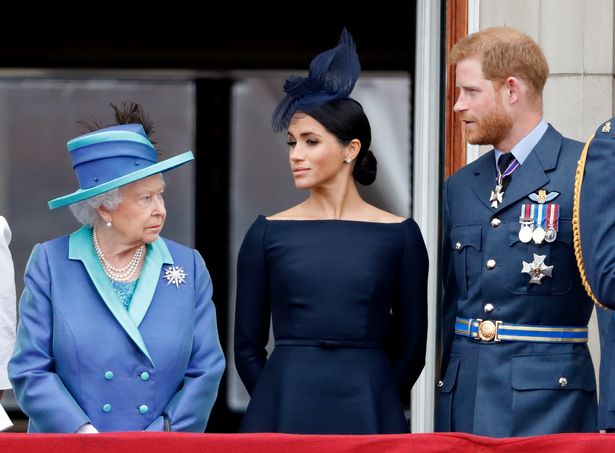 The late Queen was said to be greatly angered by the couple’s decision to name their daughter Lilibet(Image: Getty Images)
The late Queen was said to be greatly angered by the couple’s decision to name their daughter Lilibet(Image: Getty Images)
‘Lilibet’ was only used by a handful of people closest to the Queen; her parents King George VI and the Queen Mother, her late sister Princess Margaret, her husband Prince Philip, and a few close friends.
As such, there was speculation at the time about whether Harry and Meghan had sought prior permission from Her Majesty. The BBC said it had been told by a source at the palace that the Queen had not been asked, while other publications stated that when she was called by the couple, she did not feel in a position to say ‘no’.
However, a spokesperson for the Sussexes insisted that the couple would not have used the name had the Queen not been ‘supportive’. A statement said, “The duke spoke with his family in advance of the announcement – in fact his grandmother was the first family member he called.
“During that conversation, he shared their hope of naming their daughter Lilibet in her honour. Had she not been supportive, they would not have used the name.”
But, according to author Robert Hardman in his book Charles III: New King, New Court. The Inside Story, one member of staff “privately recalled that Elizabeth II had been ‘as angry as I’d ever seen her’ in 2021 after the Sussexes announced that she had given them her blessing to call their baby daughter ‘Lilibet’, the Queen’s childhood nickname”.
“The couple subsequently fired off warnings of legal action against anyone who dared to suggest otherwise, as the BBC had done. However, when the Sussexes tried to co-opt the Palace into propping up their version of events, they were rebuffed.
“Once again, it was a case of ‘recollections may vary’ – the late Queen’s reaction to the Oprah Winfrey interview – as far as Her Majesty was concerned. Those noisy threats of legal action duly evaporated and the libel actions against the BBC never materialised.”

